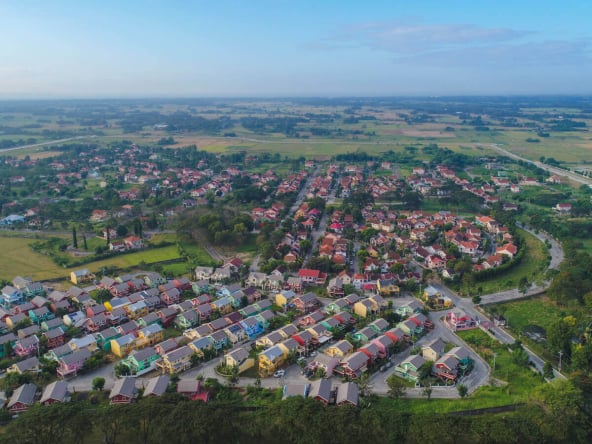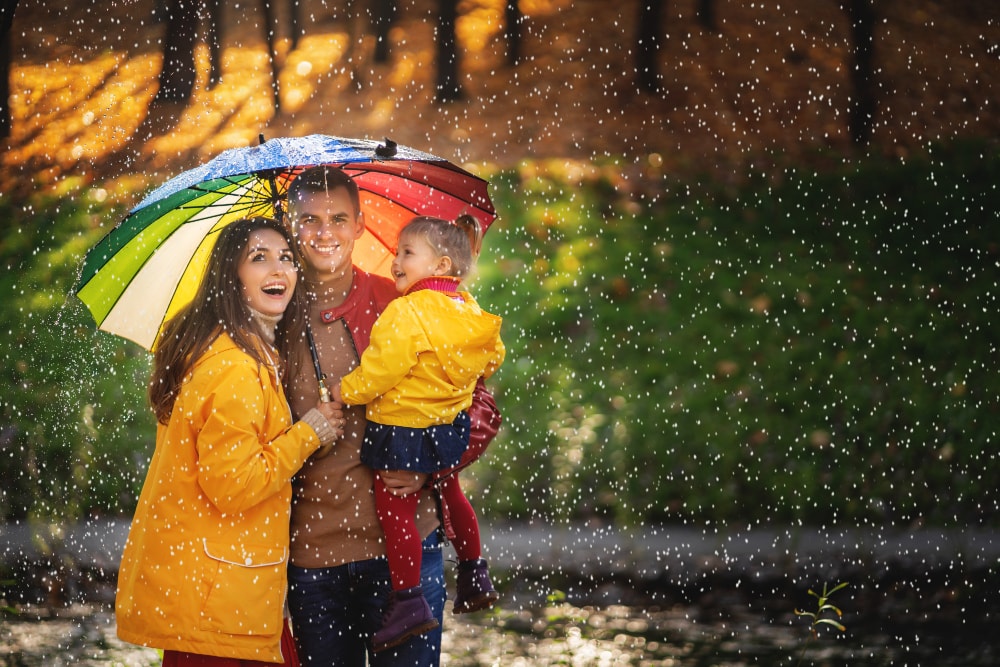
The rainy season in the Philippines typically begins in June and lasts until November, with its peak around July to September.
While the rainy season in the Philippines brings cooler temperatures and relief from the summer heat, it also increases the risk of common diseases.
But with the right prevention tips—like strengthening your immune system, maintaining good personal hygiene, and keeping your surroundings clean—you can stay protected and healthy even in the wettest months.
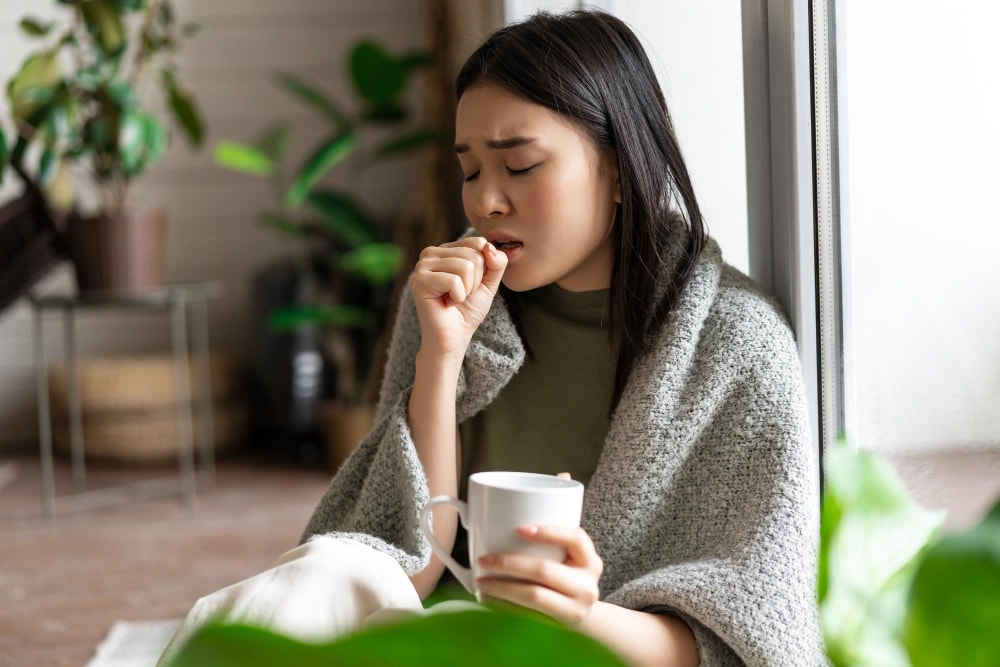
Common Rainy Season Diseases
The Philippines experiences a significant increase in monsoon diseases during the wet months.
Here are some of the most common diseases associated with the rainy season:
Dengue fever and Malaria
During the rainy season, diseases from mosquitoes rise. Stagnant water from frequent rain becomes a prime location for mosquito breeding.
One mosquito-borne disease transmitted by the infected Aedes mosquito, dengue causes high fever, joint and muscle pain, skin rashes, and severe complications if left untreated.
While malaria is on its way to being eliminated, there are still parts of the Philippines where it’s endemic. Infected anopheles mosquitoes spread malaria. Symptoms include flu-like manifestations like joint pain, high fever, chills, and headaches.
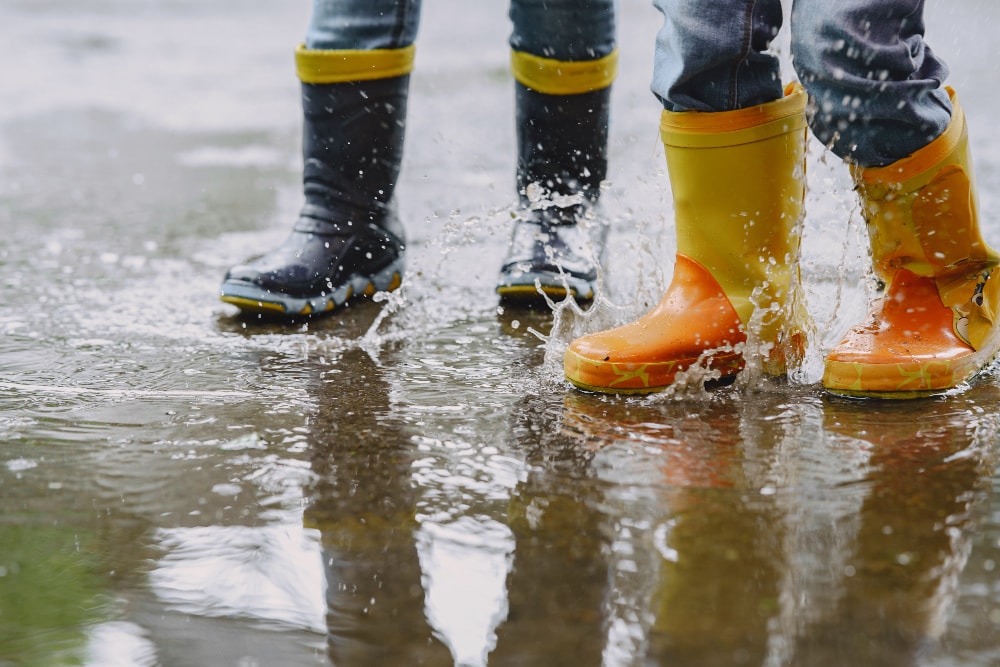
Leptospirosis
Caused by water contaminated with the urine of infected animals, this bacterial infection can lead to abdominal pain, muscle aches, fever, and potentially severe dehydration.
Typhoid fever
This is spread through food and water contaminated with Salmonella Typhi bacteria. Typhoid fever symptoms include high fever, abdominal pain, and body aches. It’s one of the most dangerous water-borne diseases.
Hepatitis A
This illness is spread through ingestion of the Hepatitis A virus, mostly through contaminated food or water. Hepatitis A affects the liver. Its symptoms include nausea, fever, and fatigue.
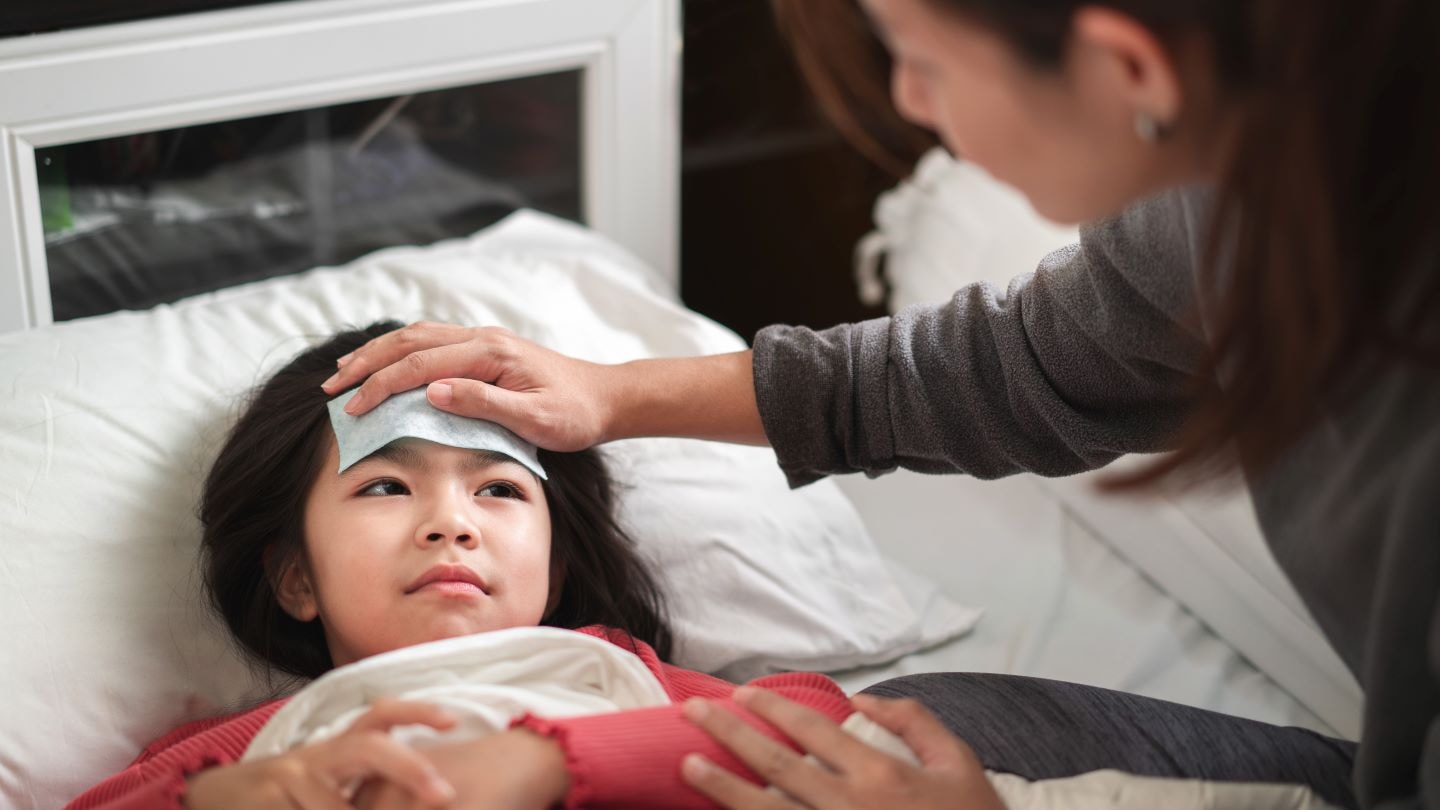
Common cold and influenza
Coughs, colds, and flu are some of the most common diseases during the rainy season. These viral infections spread quickly during the rainy season and present with runny nose, sore throat, muscle pain, and fever.
Fungal and skin infections
The increased humidity during the monsoon season creates a perfect breeding ground for fungi, leading to skin infections, especially in people with poor personal hygiene or with a lack of access to sanitary water.

Rainy Season Illnesses Prevention Tips
1. Strengthen Your Immune System
One of the key illness prevention tips regardless of the season is reinforcing your immune system.
The first line of defense against bacterial infection or viral infection is a strong immune system. During the rainy season, eat foods rich in vitamin C, like citrus fruits, guavas, and leafy greens. These can help fight germs and protect the respiratory system.
Adequate sleep, regular exercise, and managing stress also boost immunity.
2. Drink Clean and Safe Water
Ingesting contaminated food and water heightens the risk of getting many rainy season diseases.
One of the most effective ways to avoid water-borne diseases such as typhoid fever and hepatitis A is by drinking bottled water. If you don’t have access to clean drinking water, then it’s best to choose boiled water.
Never drink tap water or water from unknown sources during the rainy season. Make sure your home’s water storage containers are clean and covered.

3. Practice Food Safety
Avoid street food during the rainy months. Some vendors could operate in unsanitary conditions, making their food more prone to contamination.
Always ensure food is well-cooked, and thoroughly wash fruits and vegetables before preparing food. Avoid consuming raw seafood or undercooked meats, as these can harbor bacteria.
4. Keep Mosquitoes at Bay
To prevent mosquito-borne diseases such as dengue fever, it’s vital to prevent mosquito breeding.
Eliminate stagnant water in flower pots, old tires, buckets, and trash. Dispose of garbage properly and keep surroundings clean. Use insect repellent, mosquito repellents, and protective clothing to reduce exposure to mosquito bites.
Install window screens and use mosquito nets while sleeping. Be especially cautious during early morning and late afternoon, when the Aedes mosquito is most active.
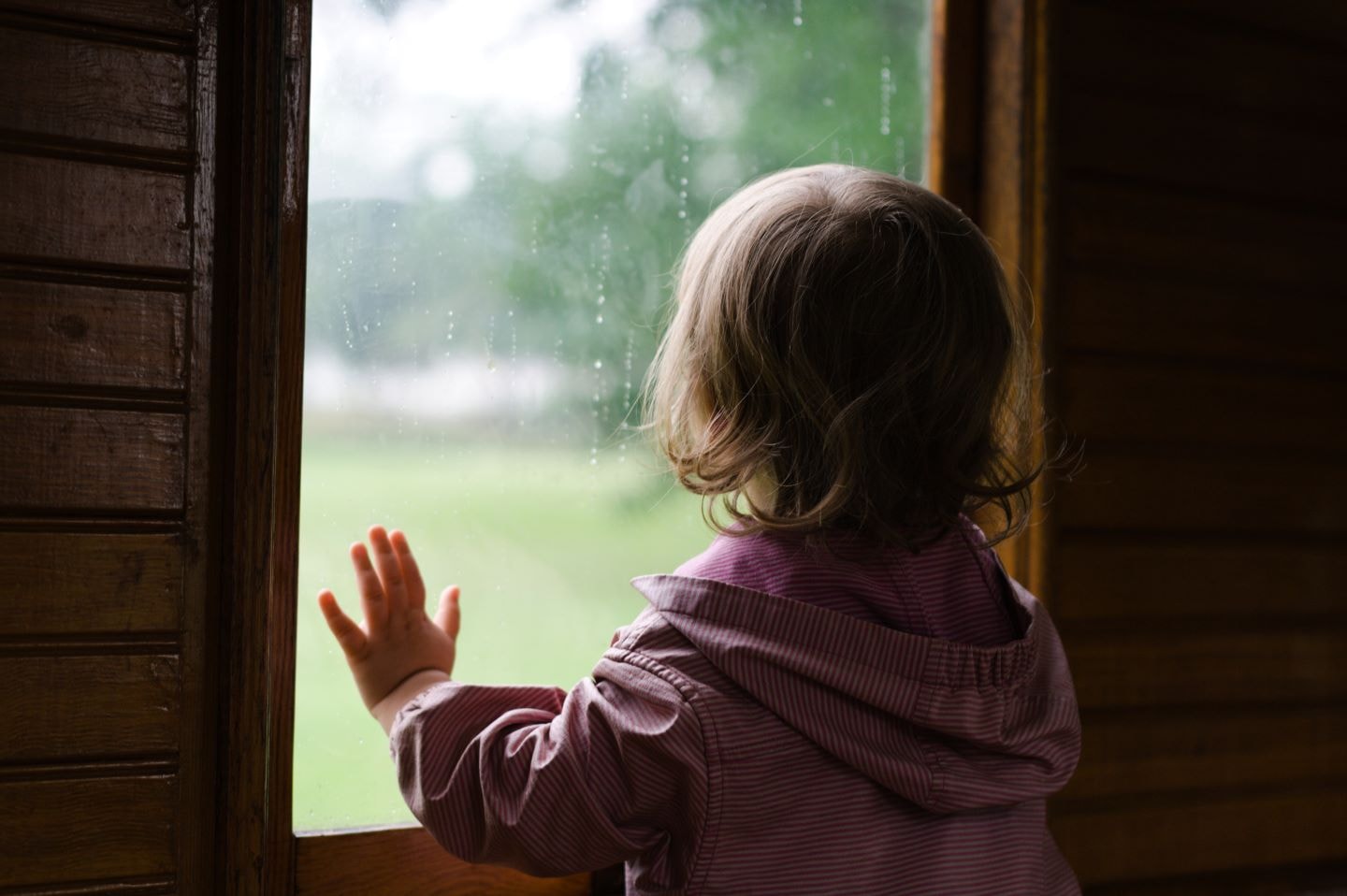
5. Stay Indoors During Heavy Rains
Heavy downpours can flood streets, turning them into rivers of contaminated water that may carry bacterial infection spread from garbage, feces, and dead animals.
If you have to go out, wear waterproof boots and avoid wading through floodwater.
6. Maintain Proper Hygiene
Personal cleanliness is essential in preventing rainy season illnesses.
Wash hands regularly, especially before eating and after using the restroom. Avoid touching your face with unclean hands. For people with open wounds, keeping them dry and covered helps prevent skin and bacterial infections.
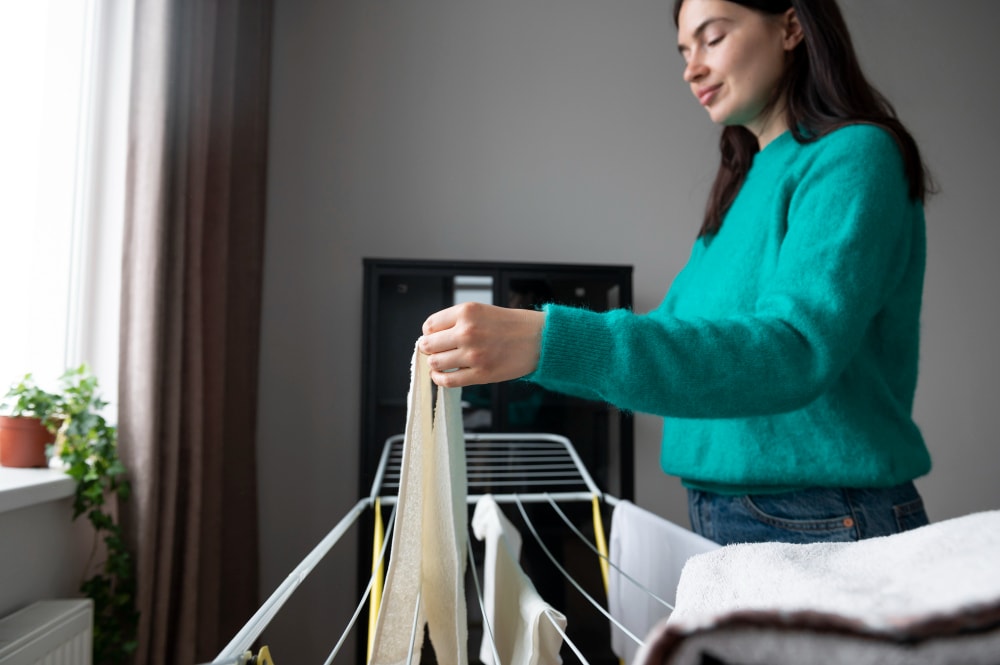
7. Dry Clothes Properly
Wet clothing, especially when not dried under sunlight, can harbor fungi and bacteria.
Ensure clothes and towels are dried completely before use. This helps prevent fungal infections and skin rashes that are common during monsoon season.
8. Be Alert to Symptoms
Watch out for common symptoms such as fever, body aches, runny nose, sore throat, abdominal pain, or joint pain. Be on the lookout for mosquito bites, especially in kids. While some mosquito bites are harmless, dengue is a big threat during the monsoon season.
If symptoms persist or worsen, seek medical attention promptly. Influenza commonly mimics other infections, so a professional diagnosis is key.
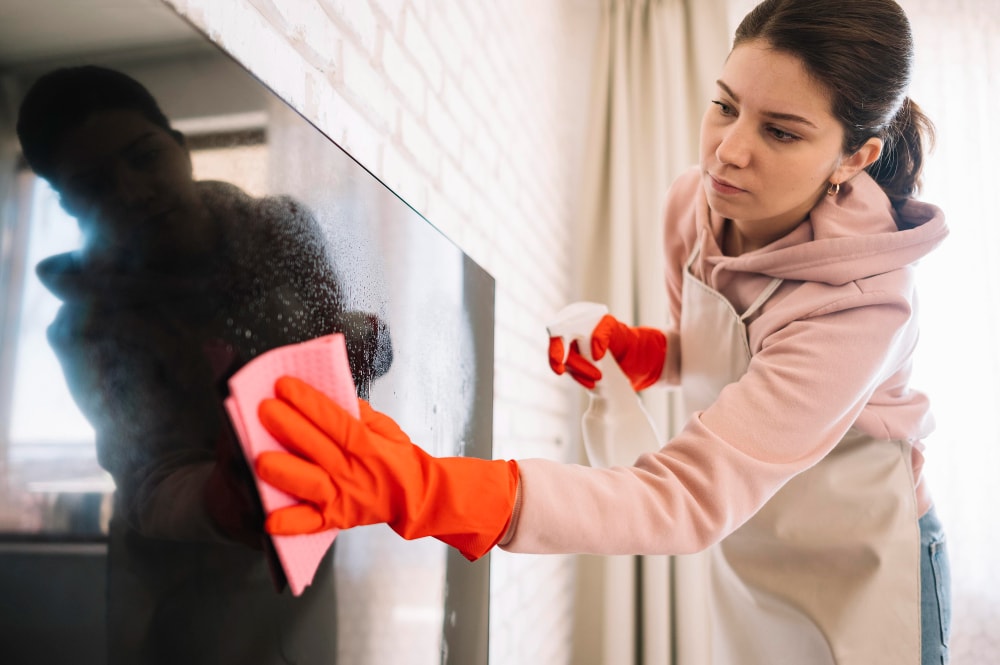
9. Disinfect and Clean Your Home
Rainy weather brings mud, mold, and germs into the home. Regularly disinfect door handles, bathroom surfaces, and kitchen counters.
Use bleach or vinegar solutions to kill germs and fungi. A clean environment reduces the risk of spreading monsoon diseases.
10. Protect Vulnerable Groups
Children, the elderly, and those with weakened immunity are more prone to rainy season diseases.
Take extra precautions for these groups by ensuring they take vitamins, drink safe water, and wear clean, dry clothes. Keep them indoors during extreme weather and away from contaminated food and water.

Be Well-Prepared in a Safe Home
One way to ensure year-round health and safety for your family is by choosing to live in a well-planned, flood-free community like Camella. With over decades of experience building homes for Filipino families, Camella designs masterplanned neighborhoods with proper drainage systems, green open spaces, and clean, secure environments that help prevent mosquito breeding and reduce exposure to monsoon diseases.
Camella communities are equipped with modern amenities and are strategically located near essential services like hospitals, pharmacies, and supermarkets—making it easier for residents to respond quickly when illnesses strike.

By choosing Camella, you’re not just investing in a beautiful home, you’re choosing peace of mind and a healthier lifestyle for your loved ones.
Stay safe this rainy season by making smarter choices for your health, your home, and your future. Choose Camella, where every home is built for all seasons.
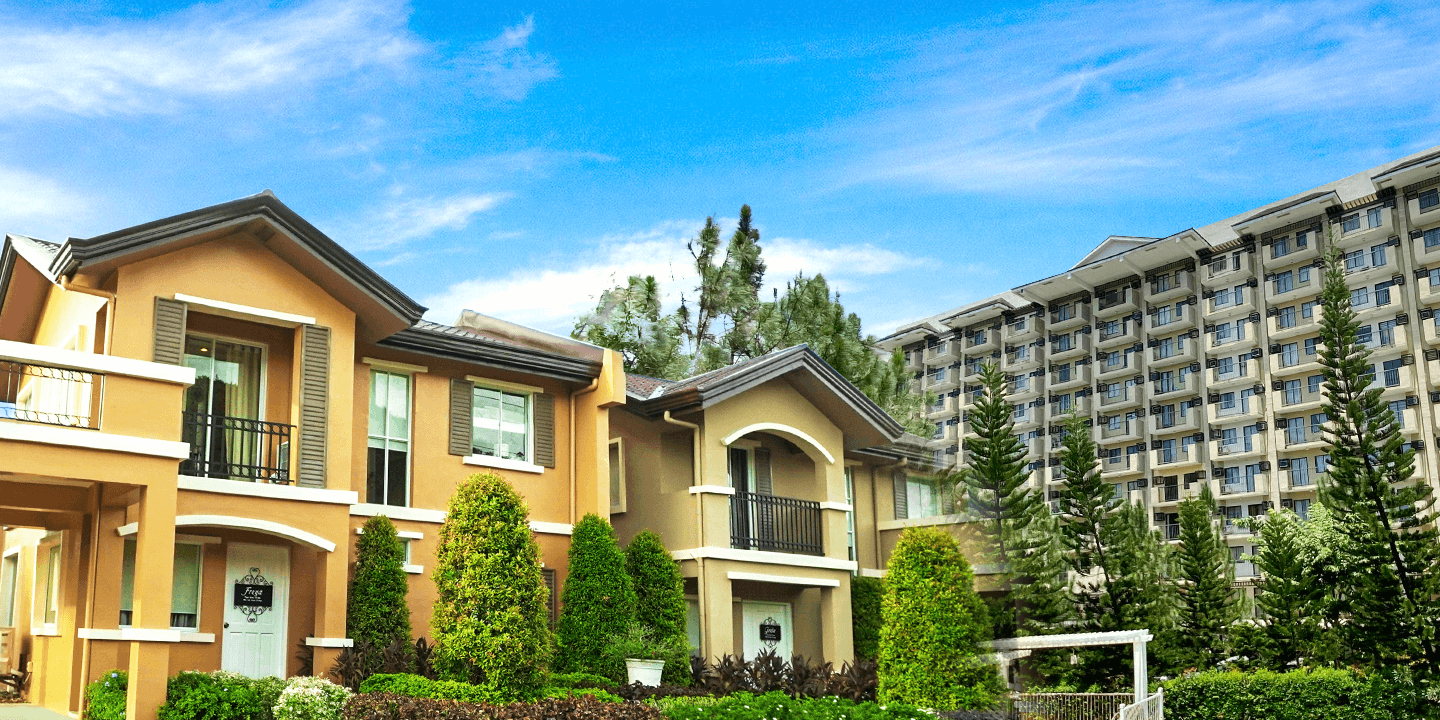
Celebrate Life’s Milestones in Camella!
House and Lot & Condominium for Sale in the Philippines

